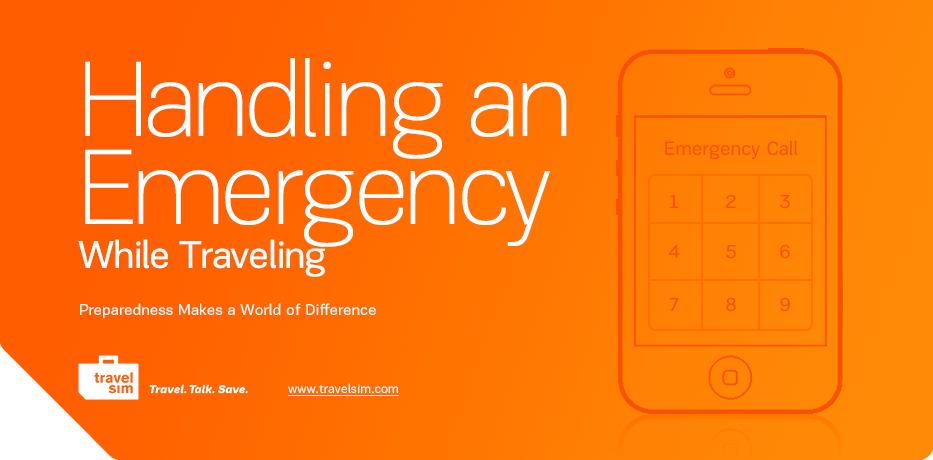Handling a Travel Emergency
Planning ahead can prevent emergencies, as well as make them easier and faster to manage. Though travel emergencies are rare, it’s always wise to have a plan. So what are some emergencies that travelers could potentially face? Below we’ve listed a few, along with good ways to prevent and handle them.
RUNNING OUT OF MONEY
PREVENTION
If you follow our budgeting guidelines, you shouldn’t run out of money. But sometimes there are too many temptations that you can’t resist at your destination (we forgive you!), and sometimes money is lost or stolen. A preventative step is to carry your money carefully and in multiple forms. In other words, don’t put everything in your wallet. Make use of pockets and bags, and carry cash as well as a credit and debit card or two. Make sure you bring the phone numbers of your credit and ATM card issuers if you need to report a card stolen or find out why your card isn’t working.
SOLUTIONS
If you are visiting or traveling with friends who have some cash to spare, you might be able to get an immediate loan from them. If your bank account is out of funds, get in touch with someone back home and ask them to make a direct deposit or wire transfer into your account. You can then use your ATM card to make a withdrawal. Overall, this is the easiest and least expensive solution. Western Union is also an easy (though not inexpensive) way to send money, and they have Agent Locations in many cities around the world. Those are the best two options, but if you’re really in a bind you can get a cash advance with your credit card from an ATM. You may need a special PIN, and it is best to call the credit card company in advance. Check on the fees while you’re at it, since you will be charged a percentage of the transfer amount, plus interest.
MEDICAL EMERGENCIES
PREVENTION
First of all, focus on staying healthy while traveling. Keep your hands clean, drink plenty of water, and get enough sleep. If you’re suspicious of any food, don’t eat it. Two months before your trip, check the CDC’s Travelers’ Health website for vaccinations and other recommendations based on your destination. It is also wise to get international traveler’s insurance to ensure you’ll get the treatment you need, when you need it.
SOLUTIONS
In the event of a sudden illness, injury or assault, summon help right away. If you are able to, call an emergency services number (see below for information about phone numbers). If you need immediate care, get to any clinic or hospital right away. You can always transfer to another hospital once your condition has stabilized. To find the best hospital, call your country’s embassy for advice. If you have traveler’s health insurance, your insurer may also be able to help. Also remember to notify your family as soon as possible.
VICTIM OF A CRIME
PREVENTION
Use common sense. Avoid dark alleys. Don’t draw too much attention to yourself. Don’t venture into unsafe areas without a plan. Some countries and cities are more dangerous than others, so familiarize yourself with your destination beforehand and find out if there are any particular crimes or problems to be aware of when you’re there.
SOLUTIONS
Depending on the crime, consider reporting it to the local police. If you plan to file an insurance claim, definitely report the crime (even if you don’t think the police will do anything). In third-world countries, report the situation first to your embassy, as they may be able to best assist you in notifying the police and your family. If the victimization results in injury or being left without funds, check above for solutions to those specific issues.
ADDITIONAL TIPS
IMPORTANT CONTACTS
There are a few numbers you should look up before heading to your destination. Keep a written copy in your wallet, but also save them in your phone. On GSM phones, the number 112 is guaranteed to connect to emergency services, no matter what country you’re in. You can also try 911, which in many countries forwards to the local number. Each country has an emergency helpline, and you look can look that information up here.
Travel insurers often have a 24-hour helpline, which can be found on your insurance card. Also keep the phone number of your country’s embassy on hand. Though they cannot provide financial assistance, they can facilitate the help you need.
SHARE YOUR PLAN
Leave copies of your plans with someone at home. They should have your itinerary, copies of your identity documents and details of your insurance policies. You should give them an idea of how often to expect contact.



